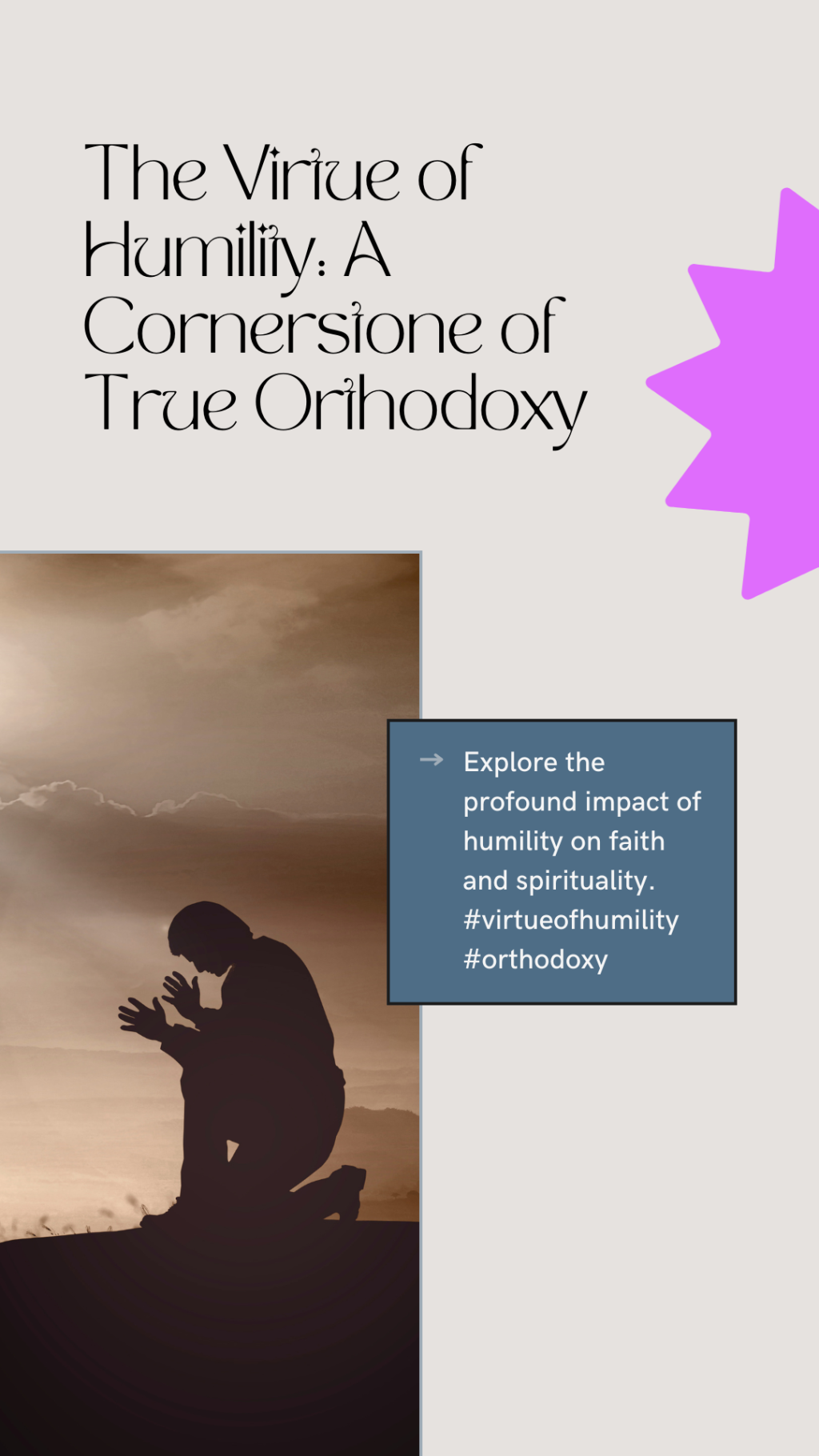The Virtue of Humility: A Cornerstone of Orthodoxy

Understanding Humility
Humility, often misunderstood as mere self-deprecation, is far deeper and more profound. It is not about thinking less of oneself, but thinking of oneself less. True humility is recognizing our limitations and the grandeur of God, acknowledging that all our talents and abilities are gifts from Him. As St. John Chrysostom said, “Humility is the root, mother, nurse, foundation, and bond of all virtue.”
Biblical Foundations
The Scriptures are replete with teachings on humility. Jesus Christ, our ultimate model, demonstrated unparalleled humility. Philippians 2:6-8 describes how He, being God, did not consider equality with God something to be used to His own advantage. Instead, He made Himself nothing, taking the very nature of a servant and becoming obedient to death, even death on a cross.
This act of divine humility is the cornerstone of our faith. Christ’s life teaches us that true greatness lies in serving others and in submission to God’s will. The Beatitudes further reinforce this: “Blessed are the poor in spirit, for theirs is the kingdom of heaven” (Matthew 5:3). To be “poor in spirit” is to recognize our spiritual poverty and our need for God’s grace.
Humility in the Lives of Saints
The lives of saints provide us with powerful examples of humility. St. Mary of Egypt, once a notorious sinner, repented profoundly and spent the rest of her life in the desert in penance and prayer. Her story teaches us that no matter how far we have strayed, humility and repentance can bring us back to God.
St. Seraphim of Sarov, known for his deep humility, would greet everyone with the words, “My joy, Christ is risen!” His life was a testament to the joy that springs from a humble heart fully surrendered to God. These saints, through their humility, became beacons of light and guides for all of us seeking a closer relationship with God.
Cultivating Humility
In our modern world, where pride and self-promotion are often celebrated, cultivating humility can be challenging but is essential for our spiritual growth. Here are some practical steps:
- Prayer and Reflection: Regular prayer and self-examination help us recognize our dependence on God and our own limitations.
- Service to Others: Serving others without seeking recognition fosters a humble spirit. As St. Basil the Great advised, “Announce your good news in secret, and the angels will take it to the throne of God.”
- Acceptance of Criticism: Embracing constructive criticism and learning from it without defensiveness is a mark of humility.
- Gratitude: Acknowledging that all we have and all we are is due to God’s grace helps keep pride in check.
- Learning from Saints and Scriptures: Regular reading of the lives of saints and the Holy Scriptures provides continuous inspiration and guidance on the path of humility.
The Joy of Humility
While the path of humility may seem arduous, it is filled with divine joy and peace. A humble heart is free from the burdens of ego and pride, open to receiving God’s grace. It is in humility that we find true freedom and the fullness of life in Christ.
In conclusion, as we navigate our spiritual journey within True Orthodoxy, let us strive to embody humility. Let us look to Christ, our saints, our holy tradition, our spiritual father as our guides. For in humility, we discover the true essence of our faith and the boundless love of God.
“Clothe yourselves with humility toward one another, because, ‘God opposes the proud but shows favor to the humble.'” (1 Peter 5:5)
May we always walk this path of humility, growing ever closer to the heart of God.
By embracing humility, we not only align ourselves with the core teachings of our faith but also become true reflections of Christ’s love and grace in the world.






